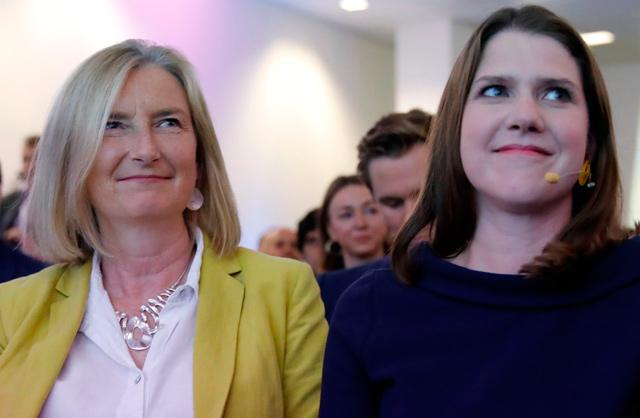You are here
UK economic growth slows sharply in 2015
By AFP - Jan 28,2016 - Last updated at Jan 28,2016
LONDON — British economic growth slowed sharply last year, dented by global financial turbulence, but showed modest signs of recovery in the final quarter, official data showed Thursday.
Gross domestic product (GDP), the total value of all goods and services produced in the economy, expanded by 2.2 per cent in 2015, down from 2.9 percent in 2014, the Office for National Statistics (ONS) indicated in a statement.
GDP, meanwhile, grew 0.5 per cent in the October-December period compared with the previous three months.
That met market expectations and marked a modest acceleration from 0.4 per cent in the third quarter.
"These figures show Britain continues to grow steadily," said Finance Minister George Osborne. "Despite turbulence in the global economy, Britain is pushing ahead."
"With the risks we see elsewhere in the world, there may be bumpy times ahead — so here in the UK we must stick to the plan that's cutting the deficit, attracting business investment and creating jobs," he added.
Osborne had warned earlier this month that Britain's economy faced a "dangerous cocktail of new threats" such as falling commodity prices, recessions in Brazil and Russia and rising tensions in the Middle East.
Economists meanwhile warn that this year's outlook is clouded by an expected referendum on whether Britain should leave the European Union (EU).
"The uncertainty surrounding the vote may prompt a slowdown in the pace of hiring and investment, and as such we may see some weaker growth figures around the time of the referendum," said ING economist James Smith.
Prime Minister David Cameron called the referendum after winning last year's general election.
Opinion polls currently point to a slender lead for those who want out of the EU.
Separately, British opposition leader Jeremy Corbyn said this month that he would stop big companies from distributing dividends unless they paid their workers the living wage as part of his proposals to promote fairer working conditions.
Corbyn, a socialist who won control of the Labour Party in September, said too much of the proceeds of growing company profits benefit the wealthiest and called for "pay ratios" to be introduced to help tackle income inequality.
"Only profitable employers will be paying dividends. If they depend on cheap labour for those profits then I think there's a question over whether that's a business model to which we should be turning a blind eye," Corbyn told a socialist conference in London, his first major speech of the year.
Britain has already announced a compulsory “national living wage” of at least £7.2 ($10.26) an hour for people aged over 25 in April, rising to around £9.35 an hour by 2020.
Corbyn's proposals were criticised by a leading employers' group, the Confederation of British Industry (CBI), which said it did not support his idea of intervening in company wages.
"The idea of politicians stepping into the relationship between a private company and its shareholders would be a significant intervention, and not one that we would support," Matthew Fell, CBI chief of staff, added in a statement.
Corbyn, whose election was seen as a major shift back to the political left for the Labour Party, also proposed maximum "pay ratios" between the highest and lowest salaries within companies.
He said Britain's pay inequality was only second to the United States among the Group of Seven (G-7) economic powers.
"Not only is this unfair, it actually holds back growth. A more equal society is not only fairer, it does better in terms of economic stability and wealth creation," he added.
Corbyn's leadership has split Labour lawmakers between his left-wing allies and moderates, some of whom have questioned his ability to lead the party to victory in a 2020 election.
Related Articles
British Finance Minister George Osborne spelled out plans for more spending cuts on Monday, betting that voters will accept his tough approach to fixing the economy and give an election victory to his Conservative Party next year.
LONDON — British Finance Minister George Osborne's latest spending plans have a roughly 50 per cent chance of success, the head of the count
LONDON — Jeremy Corbyn urged anti-Boris Johnson MPs to make him Britain's caretaker prime minister to avoid a no-deal Brexit — but his propo
















